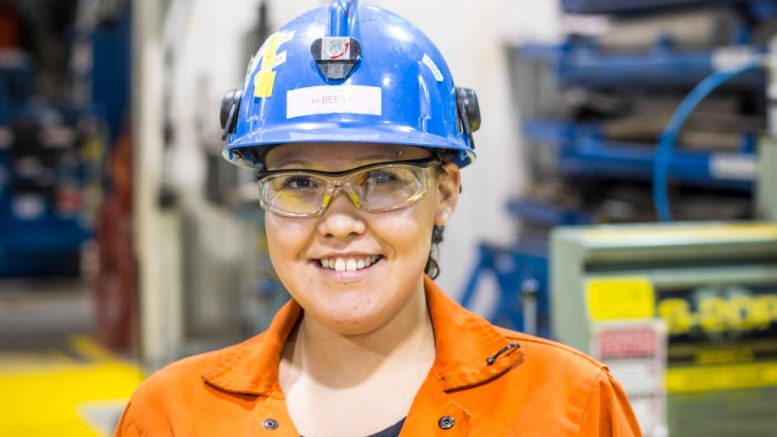About 70% of Canadians born in the mid-1990s aren’t interested in pursuing careers in the mining or oil and gas industries reveals a new survey, based on 148 ‘Generation Z’ respondents from school and universities.
The global study by BDO, an accounting and business advisory group, also states that nearly half of the world’s natural resources organizations find it difficult to attract and retain early-career professionals with just one in five Canadians considering a career in the industry.
Furthermore, the report notes that Canadian natural resources companies are behind their global counterparts in terms of prioritizing diversity and inclusion with just 36% of Canadian companies having programs in place to attract a diverse workforce, compared to 55% globally.
“The survey results show that there is both challenge and opportunity ahead for the attraction and retention of young talent within natural resources in Canada,” said Stephen Payne from Energy & Natural Resources Leader at BDO Canada, in a press release.
“To bridge the talent gap, natural resources organizations will need to not only align more closely with ESG and sustainability objectives but also develop an achievable roadmap that extends beyond compliance.”
The Canadian mining industry is experiencing a labour shortage. Job vacancy rates in the mining, quarrying, and oil and gas sector in the fourth quarter last year witnessed a 1.7% increase on a year-on-year basis, representing more than 7,500 open positions, according to Statistics Canada data.
According to the non-profit Mining Industry Human Resources Council (MiHR), there will be gap of roughly 80,000 to 120,000 mining workers by 2030, forcing companies to deal with “replacement demand” even as they need to fill net new positions.
Ryan Montpellier, Executive Director at MIHRC described the BDO survey as “accurate” and said that the industry had its hands full in trying to establish itself as an employer of choice.
“We did some polling with youth in Canada and we asked students about their interest and willingness to work in a number of different sectors. Only 11% of 2,000 youth indicate that they would work in the mining sector in Canada,” Montpellier told The Northern Miner.
Referring to BDO’s findings that 67% of Canada’s Gen Z respondents identify social purpose as an important factor while choosing their career and about 50% want to be a part of an industry that positively impacts climate change, he said the mining industry needed to “rebrand” itself.
“The importance of critical minerals to support the transition to a clean economy is an opportunity for the mining industry to repurpose its pulse,” said Montpellier.
The MiHR executive said that the organization has taken a number of steps to improve the situation, including funding 1,500 job placements in the industry, creating study programs to attract new Canadians and women to the sector and engaging with the youth to showcase modern mining work environments.
The global survey that was based on 757 responses on the natural resources sector from industry leaders and students in five major markets, has identified a “misalignment between what today’s natural resources leaders think is important” and what Gen Z prioritise themselves.
The report recommends natural resources companies to build a more compelling ESG narrative and clarifying the role of the sector in energy transition. It also urged industry leaders to showcase a wider range of roles to dispel the Gen Z perception that these jobs mean “dangerous or manual onsite work.”
The research also suggests companies to invest in programs that help in building a talent pipeline and also depend more on technology to attract future employees.
“Organizations that embrace technology to enable them to articulate the meaning behind KPIs find themselves in a better position to tackle ESG challenges and obtain buy-in from stakeholders, including future talent,” said BDO Canada’s Payne.


Be the first to comment on "BDO study shows that mining sector needs to rebrand to attract Gen Z talent "